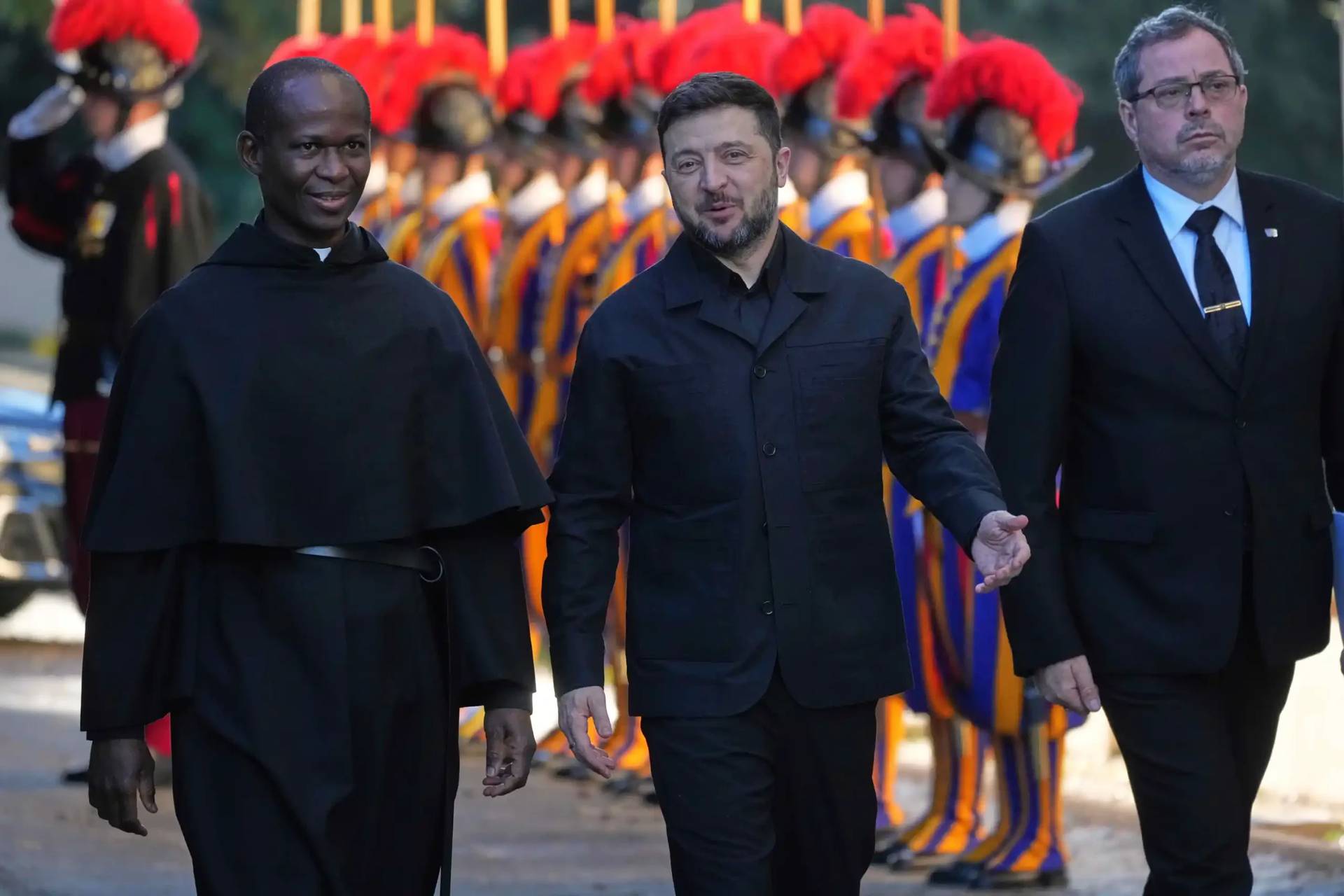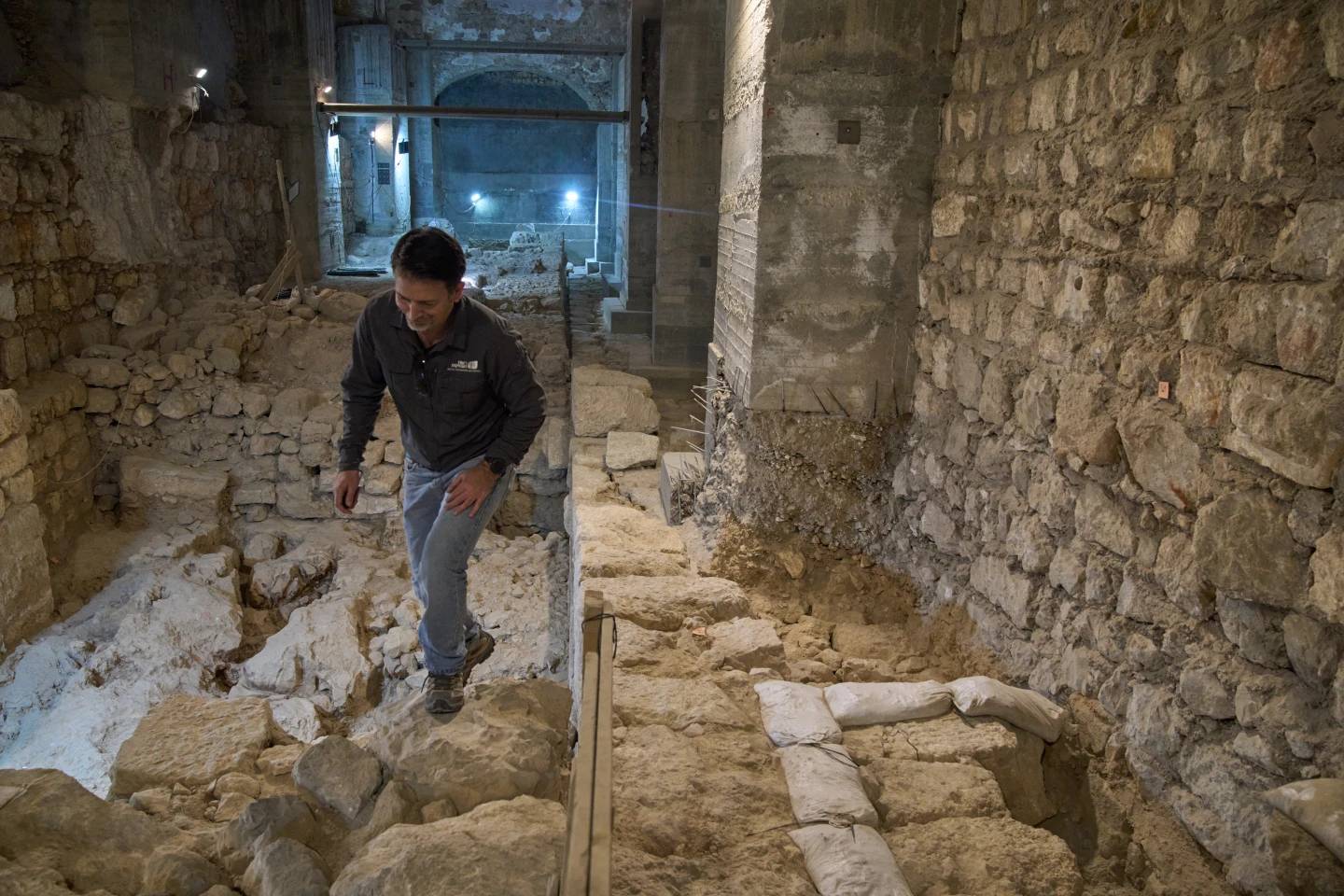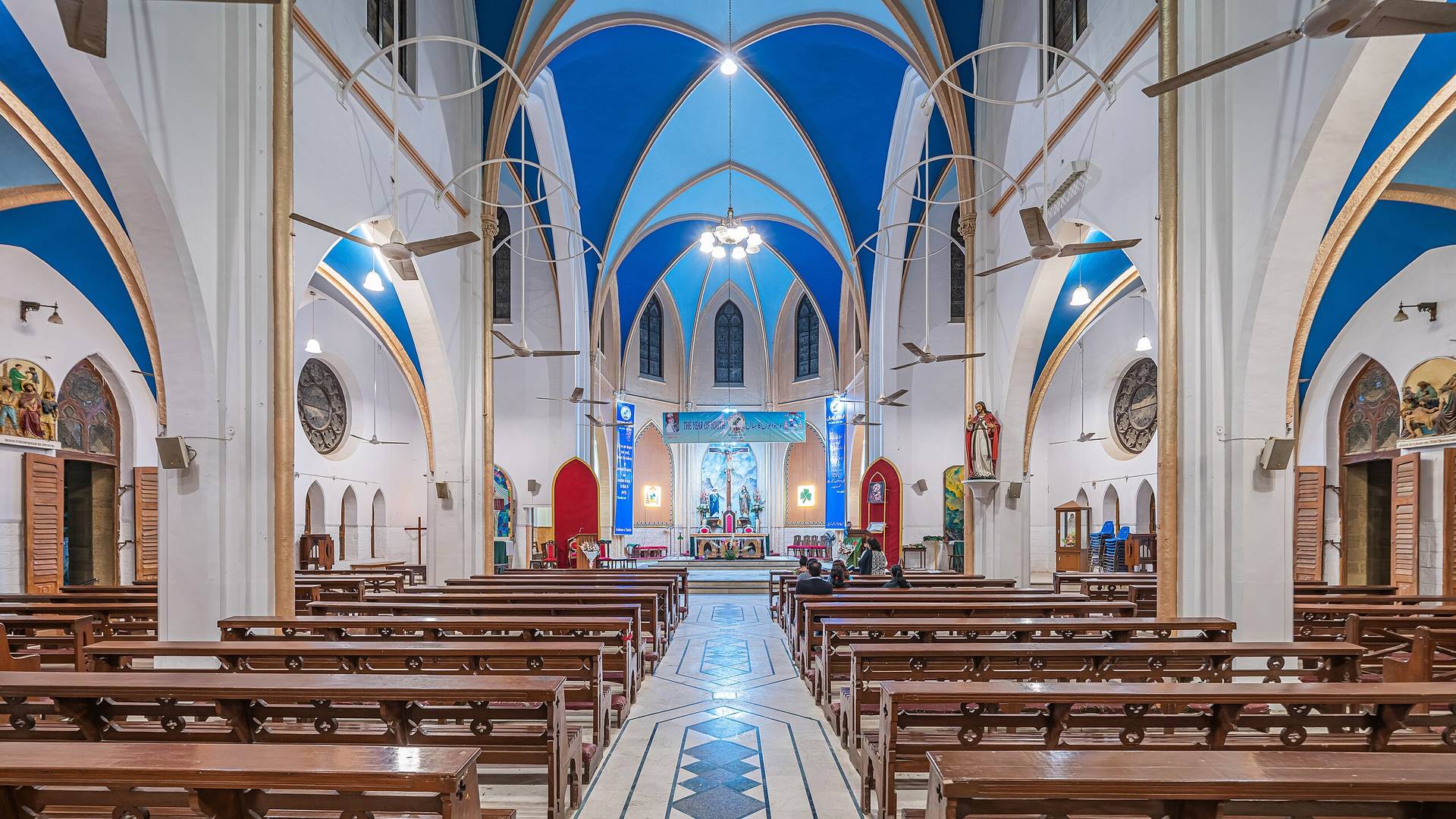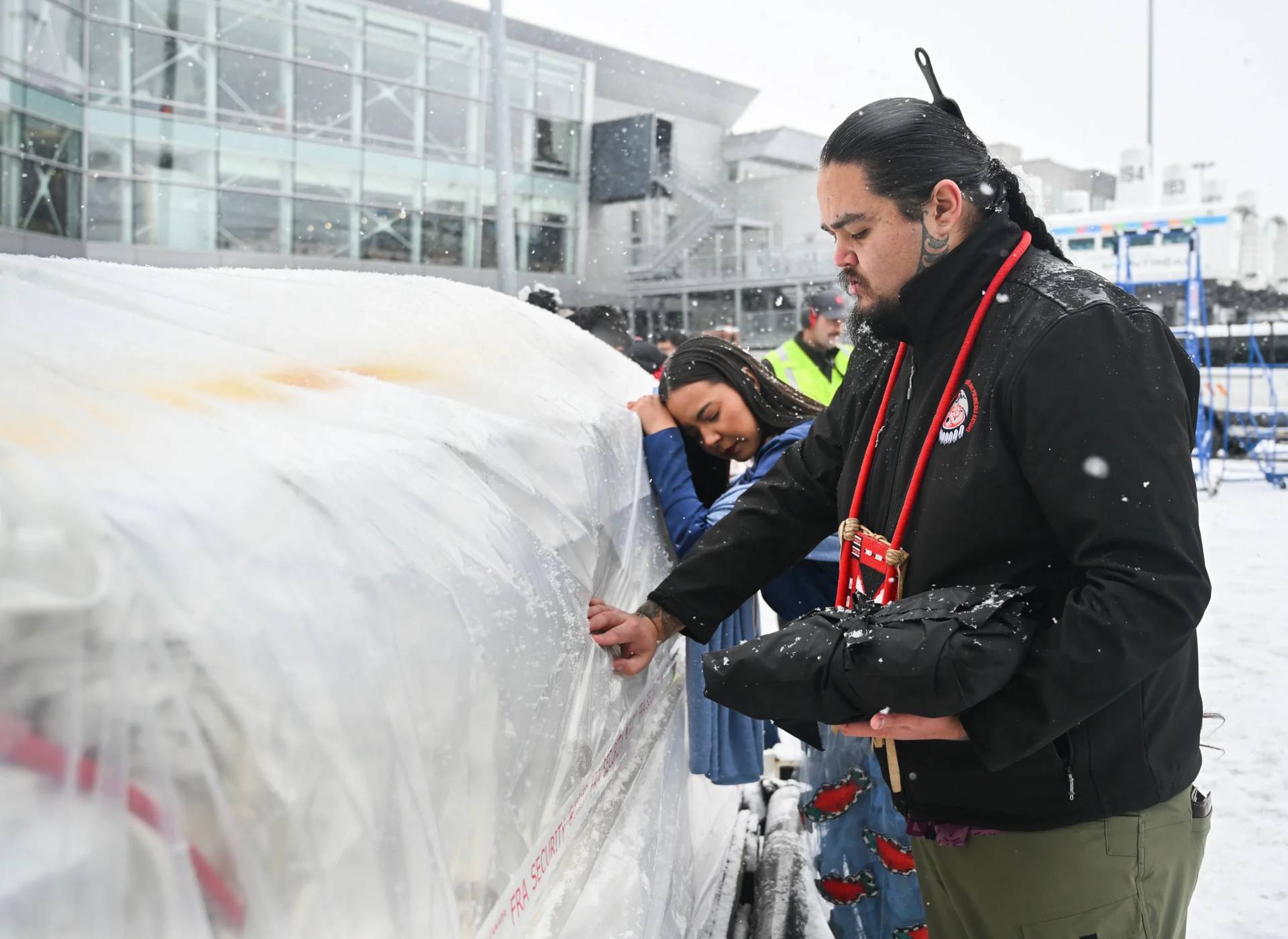EL-KAA, Lebanon – Although the fate of Christians is precarious to greater and lesser degrees all over the Middle East, few places embody the full range of challenges quite as much as the small village of El-Kaa in northern Lebanon, just across the border from Syria.
It was founded 450 years, created by a Lebanese prince who wanted a trading center along the main road between Beirut and Aleppo in Syria. An enlightened Druze ruler, he entrusted it to Christians, and it’s remained a Christian settlement ever since.
Those halcyon days are in the past however, and today El-Kaa faces a series of existential threats.
For one thing, it’s an entirely Christian village surrounded by Shi’ite towns and settlements dominated politically by Hezbollah. (The Christians here are almost entirely Greek Melkite Catholics, or, as they say in this part of Lebanon where Greek Melkites are the largest denomination, simply “Catholics.”)
While the Christians of El-Kaa say they’ve always gotten along well with their Shi’ite neighbors and they don’t see Hezbollah as a threat, they also know that if an anti-Christian threat were to arise, they’re basically on their own.
Further, given the border location, they’re in the eye of the storm whenever tensions erupt; the bloody Lebanese civil war started in the area, and when Syrian troops poured across the border to occupy a swath of the country, they rolled through El-Kaa.
Christians here also live with the knowledge that ISIS has been active in this border zone, and could return at any time. In the summer of 2016, an ISIS bombing ripped through the village, leaving four people dead.
(Residents say, however, that a recent joint military operation involving the Lebanese army, Hezbollah and the Syrian army, aimed at driving ISIS out of the area, seems to have provided at least a temporary sense of security.)
As if that wasn’t enough, the village’s resources also have been badly strained by waves of fellow Christians from Syria, refugees who see it as a destination of choice because of its proximity. Antoun Fadel, a lifelong resident who teaches in the village school, said Monday that there are now roughly 1,500 Syrian Christian refugees in El-Kaa, alongside the 2,500 native Lebanese inhabitants.
Finally, the village has felt in keen fashion the effects of Lebanon’s overall economic slump, with a large share of its youth either already gone to Beirut or abroad in search of jobs they can’t find at home. It’s a special source of Christian resentment that they’re forced to watch the economies of their Shi’ite neighbors in nearby towns propped up by foreign assistance, usually Iran, and Sunnis elsewhere also getting large infusions of foreign capital, usually from Saudi Arabia, while the Christians are mostly on their own.
Given all that, one might imagine that the basic desire of the Christians here would be to get out, to make a life somewhere with fewer risks and more opportunities. To that, Amalia Awad has a simple answer: “We’re never leaving, because this is our home.”
She’s paid a high price for that tenacity. Awad’s husband, Boulos Ahmar, a bus driver, was one of the victims in that 2016 bombing. Since his death, she said, she’s developed diabetes and suffers high levels of stress, but generally can’t afford the medications to keep the conditions manageable.
Her children also have obviously been scarred.

Awad’s oldest son, 20-year-old-Elias, to this day refuses to wear anything other than his father’s clothes, while her 16-year-old daughter won’t go to sleep at night unless one of her father’s shirts is on her pillow. (Awad explained that’s highly unusual, since the village custom is to immediately remove all the belongings of someone who has died from the house.)
Before her husband’s death, Awad said, they had a household income of about $700 a month – not enough to save anything, but enough to get by. Now, she said, that income is exactly nothing, and she and her children are dependent on handouts from fellow villagers.
Immediately after the attack, she said, they received some assistance both from government and Church sources, but that’s dried up. Moreover, she said, “The people in this village are very poor, and no one can help us more than one time.”
As a result, she said, she’s deeply worried about what will happen this winter, when temperatures drop, heating costs rise, and funds run out.
Yet, Awad insists, it’s never entered her mind to leave.
“I never felt that way,” she said, speaking in Arabic through an interpreter.
“We’re too attached to the village. Even during the Lebanese war, we didn’t leave, and we will never leave,” she said.
Her children, she said, feel the same, and more so after their father’s death, as they believe he gave his life for this place.
That determination seems to be widely shared here. Some forty years ago, amid the carnage of Lebanon’s civil war, the people of El-Kaa began building a soaring new church dedicated to St. George, the protector of Christians.
It’s still a work in progress today, with the main church complete but work still going on for a new pastoral center, which, according to Lebanese custom, will also be used for major ceremonies such as weddings and funerals. The local team says they still need to generate $200,000 to complete the project.
For Fadel, the church is a symbol of the determination of these Christians not to be uprooted from their homes.
“Christianity was born in the Middle East, Christians have always been in the Middle East,” he said. “We’ve survived wars, we’ve survived everything, and we will survive to the end.”
Dalida Matar, another village resident, wasn’t quite so sanguine.
She said right now many Christians are selling their lands to their Shi’ite neighbors because they have no other way to make ends meet. Shi’ite communities, she said, are benefiting from new industries, schools, hospitals and other basic services because of outside support, which means they’re able to weather the economic storm, but Christians usually aren’t.
“We’ve been forgotten,” Fadel said sadly. “We’ve been forgotten by other Christians, and we’ve been forgotten by the big international players. Christians on the outside should help us to be able to preserve Christian lands.”
He believes that countries such as Iran and Saudi Arabia are trying to “Islamize” Lebanon, a country that today many perceive as the last hope for Christians in the region, since to date Muslims and Christians coexist here peacefully. But, as it was pointed out throughout the day, so was the case in Syria, less than a decade ago.
“We need your help. Please, I beg you, help us!” was Fadel’s final plea.
This reporting is sponsored by Aid to the Church in Need-USA, a pontifical foundation serving persecuted Christians around the world. www.acnusa.org

















